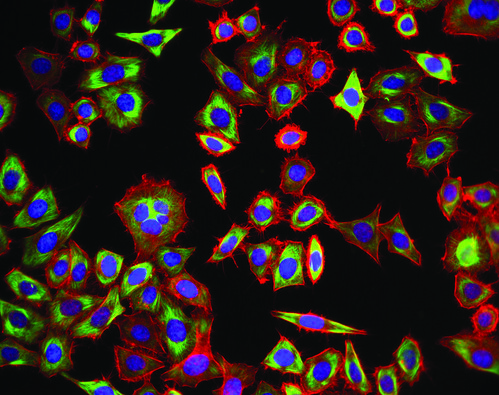 On Pharyngula, PZ Myers deconstructs the hypothesis of two physicists who show an undue enthusiasm for biology. They claim cancer is caused by cells regressing from their modern, multicellular functionality to a "proto-metazoan" lifestyle of largely uncoordinated growth. Myers says their is no plausible avenue for such atavism, writing "you can’t take one of your cells, switch off a few genes, and set it free in the ocean to swim off and follow its primitive lifestyle." Considering the factors that really contribute to cancer, Myers concludes "scientists shouldn’t be looking for optimism, they should be searching for the truth, which is sometimes going to be grim." Meanwhile, on The Pump Handle, Sara Gorman recapitulates Sir Austin Bradford Hill's criteria for determining disease causality, which are "still widely accepted in epidemiological research and have even spread beyond the scientific community."
On Pharyngula, PZ Myers deconstructs the hypothesis of two physicists who show an undue enthusiasm for biology. They claim cancer is caused by cells regressing from their modern, multicellular functionality to a "proto-metazoan" lifestyle of largely uncoordinated growth. Myers says their is no plausible avenue for such atavism, writing "you can’t take one of your cells, switch off a few genes, and set it free in the ocean to swim off and follow its primitive lifestyle." Considering the factors that really contribute to cancer, Myers concludes "scientists shouldn’t be looking for optimism, they should be searching for the truth, which is sometimes going to be grim." Meanwhile, on The Pump Handle, Sara Gorman recapitulates Sir Austin Bradford Hill's criteria for determining disease causality, which are "still widely accepted in epidemiological research and have even spread beyond the scientific community."
Advertisment